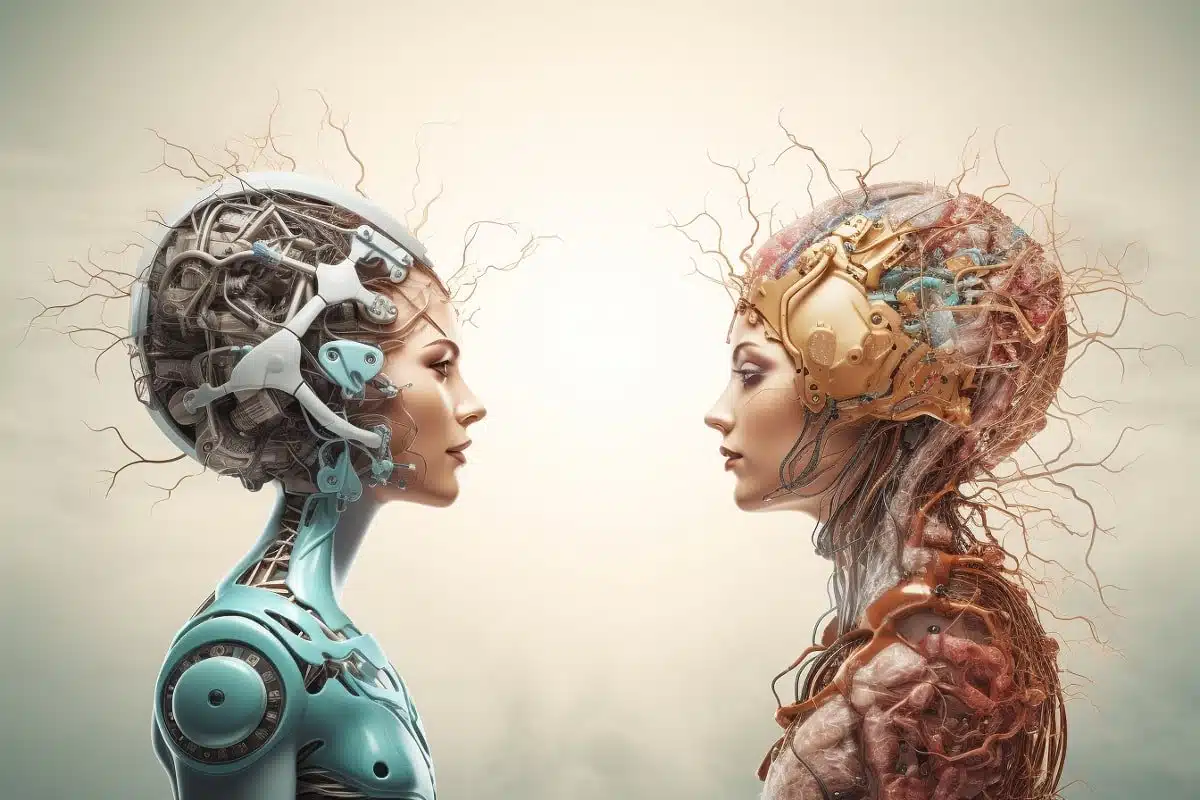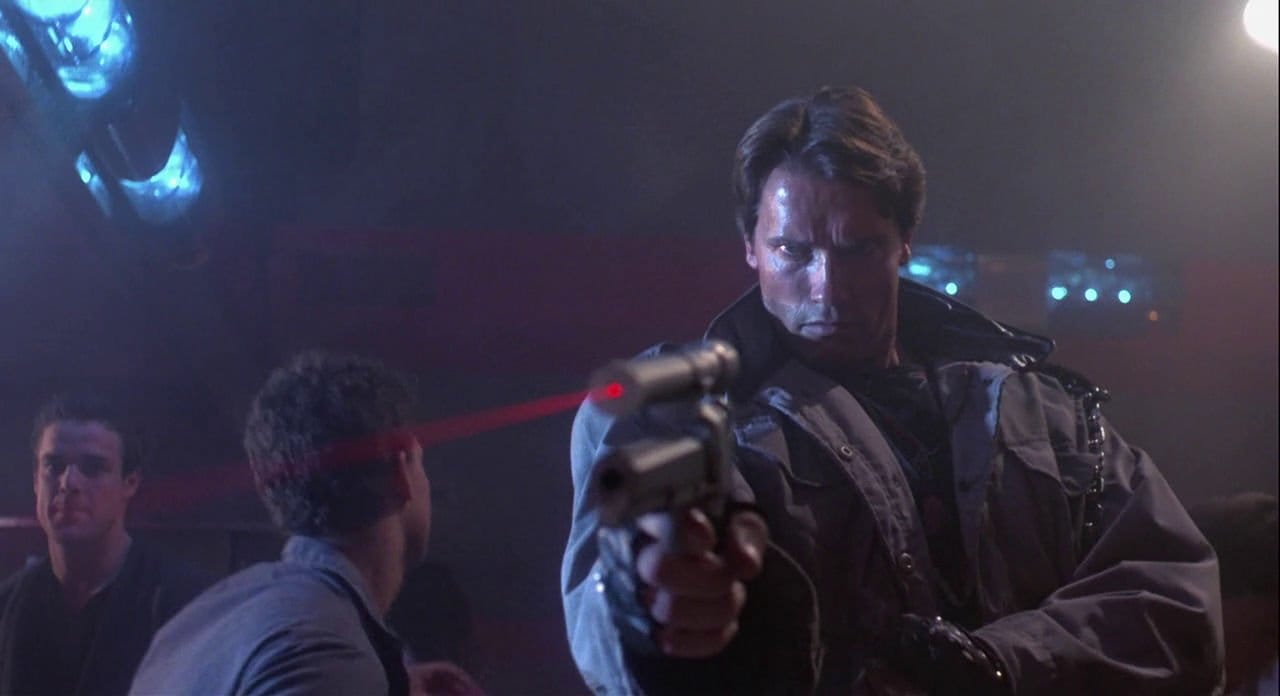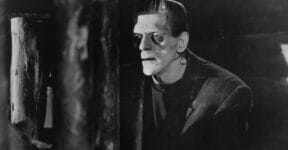Societal fear exists at any point throughout human history. As a society, we have our concerns about the possibility of another great war, nuclear fallout, corporate greed, the rise of authoritarianism, deadly pandemic, over-reliance on technologies, asteroid impact, and, of course, alien invasion. All those fears might be as real as they may come, but they’ve become major inspirations behind a lot of sci-fi horror movies we can all enjoy. Behind the scary radioactive mutants and the excitement of time travel, those movies offer a glimpse into our contemporary fears. In this blog, we will answer how sci-fi horror movies reflect our anxieties about technology and the unknown.

Medical Experiments
Excuse us for bringing up a novel in a list that’s supposed to only include movies, but we’re talking about sci-fi horror here, so there’s no way we can omit Mary Shelley’s Frankenstein. In an evening in 1818, Shelley and her poet husband along with John Polidori (often credited with the creation of vampire fiction of the fantasy genre) were spending time in Lord Byron’s villa near Geneva as party guests. It is said that the four of them were discussing the boundary between life and death at great length.
And then an idea came up about the discovery of the origin of life and whether scientists could use electricity to resurrect the dead. Some time later, Lord Byron proposed a writing contest, of which the winner would be the one who could write the best ghost story. Mary Shelley took part in the competition; her entry was none other than Frankenstein.
On the surface, the novel is about a monster seeking revenge on humanity for rejecting him only because he appears different from anybody else. This monster is created by scientist Victor Frankenstein using different body parts taken from multiple deceased people. The scientist electrocutes the reassembled organs, and voilà, the corpse comes back to life. Even the scientist himself runs away from his own creation out of fear that the monster will kill him.
Upon closer inspection of the storyline, the novel functions as a social commentary on our fears of uncontrolled scientific experiments. Among the principal themes include the scientist’s character, motivation, and sense of gratification from his experiment. And then he cannot cope with the consequences of his own work. Frankenstein is an outright cautionary tale about the perils of scientific advances–in this case, medical science. Back in 1818, medical advances were still seen as some kind of magic (perhaps wizardry) simply because of the society’s limited understanding of human biology.
With that in mind, it’s easy to imagine Mary Shelley’s Frankenstein being one of the most prominent literary works to address the contemporary societal anxiety of the era. Could science bring the dead back to life? Would medical science pose a threat to humanity? Should doctors and scientists be held responsible for conducting dangerous experiments?
And as we all know, scientific experiments gone wrong have been a mainstay in sci-fi horror movies, too. Some well-known examples are The Fly (1958), The Island of Dr. Moreau (1977), The Lazarus Effect (2015), Mimic (1997), Re-Animator (1985), and Splice (2009) – without including the many film adaptations of the novel.
Space Exploration
Killer aliens may not sit at the top of the long list of modern societal fears, but the anxiety exists. Since the early days of the Space Race during the height of the Cold War, there has been an ever-present concern about the possibility of encountering hostile extraterrestrial species and if they have much more advanced technologies than we do. That intelligent lifeforms (other than humans) exist somewhere in the dark space is undoubtedly pervasive in popular culture.
The more we know about the galaxy and the observable universe, the more likely we are not alone. The universe is massive beyond comprehension and teeming with billions, if not trillions, of planets–we have little reason to believe that Earth is the only inhabitable one. On the one hand, we are eager to discover extraterrestrial lifeforms; but we cannot ignore the potential danger of exposing ourselves to civilizations that far surpass our scientific understanding. Sci-fi horror movies like Alien (1979) and Predator (1987) intensify this social anxiety about the unknowns.
Artificial Intelligence
And more recently we have been baffled by the potentially unlimited power of artificial intelligence and how it may negatively affect humanity. The influence of AI is far-reaching into how our world works. AI can control your computer, build robots, and sometimes take over the nuclear launch code. Perhaps the threat of AI is the biggest societal fear today. You probably think that a depiction of AI as the greatest villain in the world could only come from modern movies, but sci-fi horror has been at the forefront of the foretelling since decades ago.
Remember the film where Arnold Schwarzenegger is a cyborg from the future? The Terminator, released in 1984, portrays one of the worst things that could happen if we give technology too much power and let it control too many things. In the film, a network of super-intelligent systems brings humanity to its last stretch by taking over the world’s nuclear arsenal and building an army of cyborgs to crush human rebellions. The Terminator is almost a complete set of sci-fi horror tropes filled with wide-ranging topics from time travel, artificial intelligence, nuclear apocalypse, and killer robots. But, The Terminator is a glorious take on the global trend of human dependence on technology.
We think science experiments gone wrong, intelligent extraterrestrial lifeforms, and artificial intelligence will continue to dominate the talking points in sci-fi horror movies for years to come because they’re arguably our biggest ever-present societal anxieties. It all comes down to the dark side of progress. We are promised that science, progress, space exploration, and technologies will improve our quality of life and make the world a better place, but each step toward advancement comes with the risk of destruction. Sci-fi horror movies depict with worst-case scenarios if we proceed with our reliance on technology and our hunger for explorations without cautions.
Do you think we miss any other societal fears? Do you think that the way time travel is depicted in The Terminator falls under sci-fi or pure fantasy? We’d love to hear from you.
Other Things You Might Want to Know
Some of Arnold’s Schwarzenegger’s most recent filmography:
| Film | Year | Role |
| The Expendables | 2010 | Trent “Trench” Mauser |
| The Expendables 2 | 2012 | |
| The Last Stand | 2013 | Sheriff Ray Owens |
| Escape Plan | Emil Rottmayer / Victor X. Mannheim | |
| Sabotage | 2014 | Agent John “Breacher” Wharton |
| The Expendables 3 | Trent “Trench” Mauser | |
| Maggie | 2015 | Wade Vogel |
| Terminator Genisys | Terminator / Guardian | |
| Aftermath | 2017 | Roman Melnyk |
| Killing Gunther | Robert “Gunther” Bendik | |
| Viy 2: Journey to China | 2019 | Captain James Hook |
| Terminator: Dark Fate | T-800 / Carl | |
| Kung Fury 2 | TBA | “The President” |
Animated horror movies to watch:
- Mad God (2021)
- The Wolf House (2018)
- Fear(s) Of The Dark (2007)
- The Nightmare Before Christmas (1993)
- Coraline (2009)
- Seoul Station (2016)
- The House (2022)
- Monster House (2006)
Upcoming sci-fi movies:
- Mickey 17 (Jan. 31 2025)
- The Electric State (March 14, 2025)
- Thunderbolts (May 2, 2025)
- Elio (June 13, 2025)
- Jurassic World 4 (July 2, 2025)







